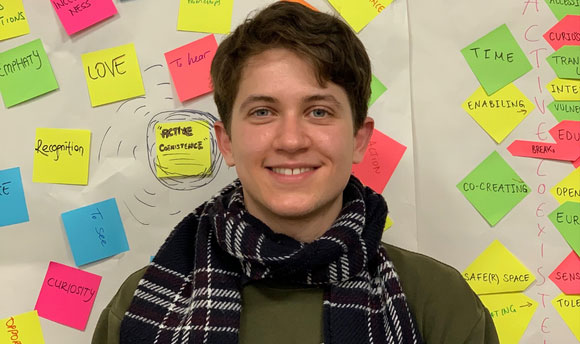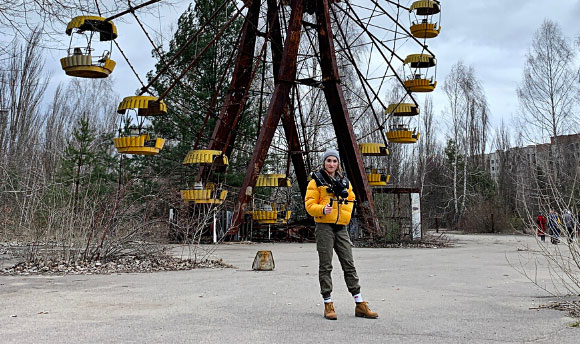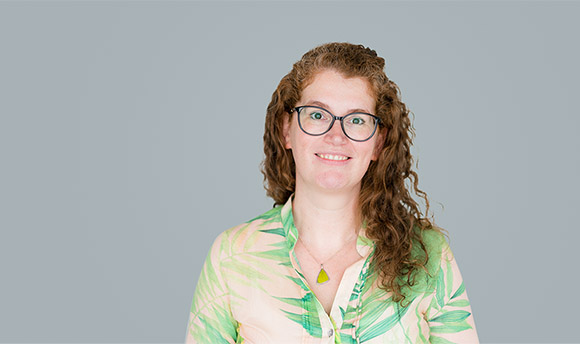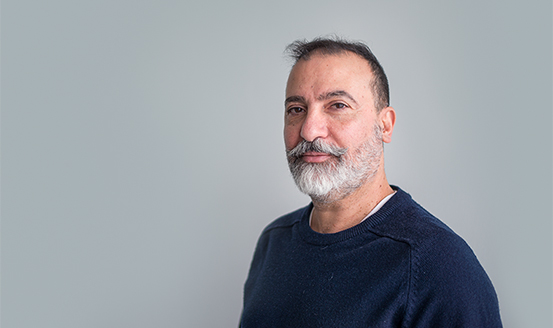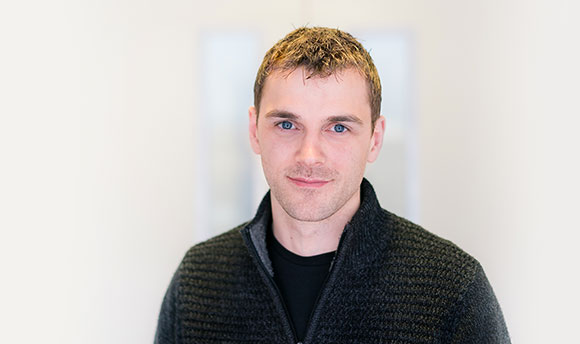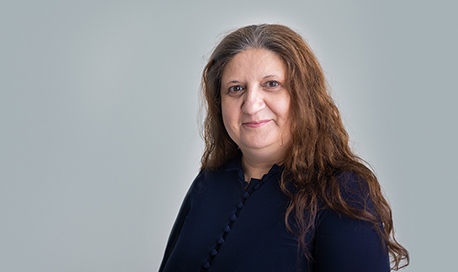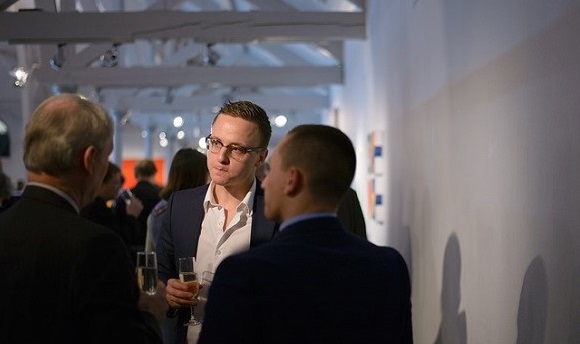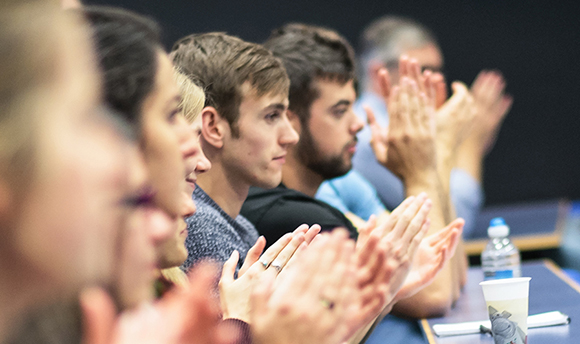Undergraduate Open Days (September and October 2024) Book your place at a QMU Open Day
Theatre and Film - BA (Hons)
If you love theatre and film, you can study them both in depth on the only course of its kind in Scotland. This innovative BA (Hons) in Theatre and Film course combines practical work-based learning with a solid grounding in critical studies.
And… ACTION! Film and theatre are thriving industries, creatively and commercially. This course will give you the confidence and skills you need to enter careers in theatre, film, teaching, and professions demanding communication and creativity. You will be able to forge your own career path, taking full advantage of a course that is flexible to fit your needs.
Why QMU?
- Excellent facilities: We have superb on-campus resources: performance spaces, rehearsal studios, a film editing suite, TV studio, and the Business Innovation Zone, our incubator home to several theatre and film production start-ups.
- Potential to showcase your work: See your films screened on the big screen at the end of year show (subject to selection).
- Great location for studying this area: Edinburgh is known as the Festival City, with the world’s biggest arts festivals right on your doorstep. Hosting the Edinburgh Festival Fringe and many more, this is one of the best places in the world to start your career.
- Ranked highly in the UK: QMU is ranked 1st in Scotland and 9th in the UK for Drama in the Guardian University Guide 2024.
Studying BA (Hons) Theatre and Film
Theatre and Film - BA (Hons): The course in brief
On this course you will:
- have the unique opportunity to study two increasingly interrelated disciplines in depth and in tandem, developing your knowledge of theatre, film and everything in-between, to prepare yourself for an exciting career in an evolving field;
- learn about the histories of theatre and cinema, and examine the key critical, cultural and political debates that shape them;
- discover the practicalities of theatre and film making, from scriptwriting to production, across genres and forms; and
- take advantage of industry-focused learning, exploring the economics and management of the creative industries, with insight into funding, freelancing and creative entrepreneurship.
How will I be taught?
Structure
All students enrol onto the honours degree, but you can choose to exit with an ordinary degree after three years.
Teaching, learning and assessment
You learn through lectures, seminars, practical workshops, individual work and group work, where you will be producing a range of performance events and production material.
You will learn from experts in the theories and practices of theatre and film, drawing on staff's extensive academic and industry experience. In addition, you will have the opportunity to attend panels, Q&As and workshops led by industry professionals such as directors, writers, producers.
Assessment methods include portfolios, presentations, essays, short films, screenwriting and playwriting, amongst others.
Facilities
Our industry standard facilities include Performance Studios with full technical capabilities, Rehearsal Spaces, a Film Editing Suite, and a TV Studio with green screen technology. In addition, equipment including cameras, sound recording equipment, laptops, virtual reality headsets are available upon request.
QMU students have access to the Business Innovation Zone, our incubator which is home to over 40 start-ups in theatre and film production, healthcare, and food and drink. More than half are founded or co-founded by women. Many of them are award winners.
Together, these facilities enable students to gain hands-on and industry-focussed experience.
Placement (industry-based learning)
You will not go on a placement as such, but frequent work-based learning opportunities will help you to build your theoretical studies into invaluable real-world skills.
You will work with industry clients on the 'Client Project' module in Year Two.
Our students often take advantage of Edinburgh's vibrant cultural life, making films, putting on performances or participating in film festivals and competitions.
Exchange opportunities
Studying abroad through our exchange programme can be one of the most exciting and rewarding challenges for a student to experience. The opportunity to travel and live in another country, learn different customs and traditions, meet new people and future career draws many students into the exchange programme. In Year Three you have the opportunity (subject to availability) to study for one semester at a university overseas. Please visit the Exchanges and Study Abroad pages for more information.
Teaching staff, class sizes and timetables
You can read more about the teaching staff on this course at the bottom of this page. Please note that teaching staff is subject to change.
For more information, please also visit ‘How we teach and how you’ll learn’.
What will I learn each year?
Year One
You will:
- gain a broad understanding of how theatre and film work as creative industries; and
- start your study of theatre and film form and performance, and gain experience of creative production.
Modules
- Media Production: Skills and Techniques
- Introduction to the Study of Theatre and Performance
- Introduction to Theatre Production
- Studying Cinema
- The Origins of Theatre
- Media Production: Video Project
Year Two
You will:
- examine questions of genre and creativity alongside the theory and practice of stage and screen performance; and
- get a chance to work with real-life clients in the creative industries.
Modules
- Media Production: Storytelling
- Making Theatre
- Film Genre
- British Theatre since 1945
- Client Project
- Creative Writing for New Media
Year Three
You will:
- look at key periods, movements and practitioners in theatre and film, alongside modules in areas such as playwriting, animation and global cinema;
- create your own production projects and choose additional, optional subjects such as photography or community theatre;
- have had plenty of opportunities to gain production experience from Year One and Two, and can specialise in practice areas; and
- have the opportunity (subject to availability) to study for one semester at a university overseas. For more information, visit Exchanges and Study Abroad.
Modules
- Global Film Cultures
- Arts Funding in its Policy Context
- Current Debates in Performance Theory
- Designing a Research Project
- plus two options
Year Four
You will:
- look at the unique relationship between theatre and film in a core module on Adaptation, alongside optional modules that can shape your ambitions in creative entrepreneurship; and
- design and create your own production projects and choose additional, optional subjects such as photography, the video essay or community theatre.
Modules
- Adaption: Stage and Screen
- Creative Enterprise in the Performing Arts
- Dissertation
- plus two options
Year Three and Four options may include:
- Photography and Visual Culture
- Photography Practice
- Screenwriting
- The Video Essay
- Experiential Learning Placement
- Science Fiction, Fantasy and Horror
- Scotland on Screen
- Popular Music
- Film and the Family
- Film Festivals
- World Animation
- Communication, Arts and Activism
- The Only Way is Ethics: Art, Participation and Ethics
- Performance Art Practice (by application only)
- Writing for Radio
- Creative Learning and the Community
- Producing for the Stage
- Directing for the Stage
- Directing, Designing and Performing Shakespeare
- Directing, Designing and Performing Contemporary Plays
- Staging the 20th Century: How Scenography Built the Modern Imagination
NB The modules listed here are correct at time of posting (Feb 2024) but may differ slightly to those offered in 2025. Please check back here for any updates.
Career opportunities
This course will arm you with the knowledge and specialist skills to embark on a host of exciting careers. Our graduates have used the course as a springboard to careers in theatre, film, teaching, postgraduate study and professions demanding communication and creativity. Example careers include TV production, freelance video production, festival curation, scriptwriting, setting up their own theatre production company, assistant director, drama teacher, administrative work in creative industries.
Theatre and Film - BA (Hons): Entry requirements and application information
Entry requirements
Scottish Higher: Standard - AABB, Minimum - BBBB
A Level: BBB
Irish Leaving Certificate: H2 H3 H3 H3 H3
International Baccalaureate: 30 points
International: IELTS of 6.0 with no element lower than 5.5.
Required subjects: English, Drama or Media Studies preferred at Scottish Higher/A Level. English required and Maths preferred at Nat 5/GCSE. We can also accept National 5 Application of Maths or Lifeskills at the same grade.
Am I a Widening Access student?: We apply the minimum entry criteria to applicants who meet one or more contextual factor. To see if this would apply to you, please refer to the access and application page.
Mature/Access: We welcome applications from mature students with other relevant qualifications and/or experience. Visit our College Leavers and Mature Students Advice page for more information.
Direct Entry: Not typically available
Other requirements
A satisfactory criminal records check from the Protection of Vulnerable Groups (PVG) Scheme will be required if you select the optional module Drama in Education later in your studies.
Other costs
- The cost of the PVG check is the responsibility of the student. For more information on this, visit the UG 2025 fees page on our website.
- The additional costs associated with placement travel and accommodation are the responsibility of the student. Students who receive SAAS funding may be able to claim for some of these expenses to be reimbursed.
Disability/health conditions
If you have a disability, long-term physical or mental health condition, or learning disability, it should not stand in the way of your studying at QMU. However, if you are not sure whether your disability might be a barrier in your studies or in relation to the professional standards, please contact the disability service who will be able to have a conversation with you about reasonable adjustments and supports available to you.
Terms and Conditions
- The delivery of this course is subject to the terms and conditions set out in our 2025/26 Entry Terms and Conditions (Undergraduate).
- The course information on this page is correct at the time of posting (Feb 2024) but may differ slightly for 2025 entry. Please check back here for updates.
Awarding body
QMU
Check out a film on our specialist facilities for our film, communication and creative industries courses.
Course Overview
Find out about our research in this area
Opportunities to meet us: open days and more
As well as open days, we offer campus tours and online events throughout the year to help you find out more about student life and studying at QMU.
Open days and other ways of meeting us: more information
